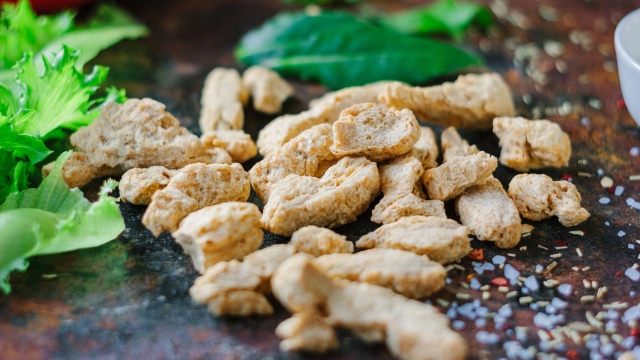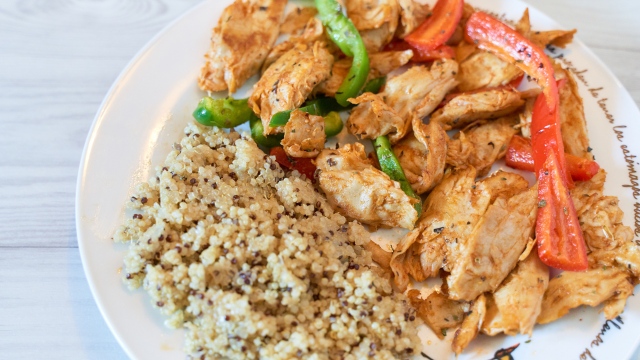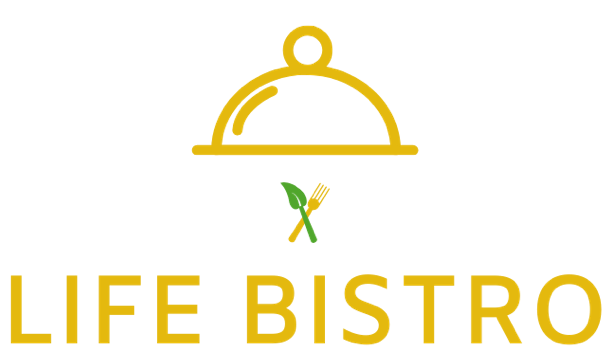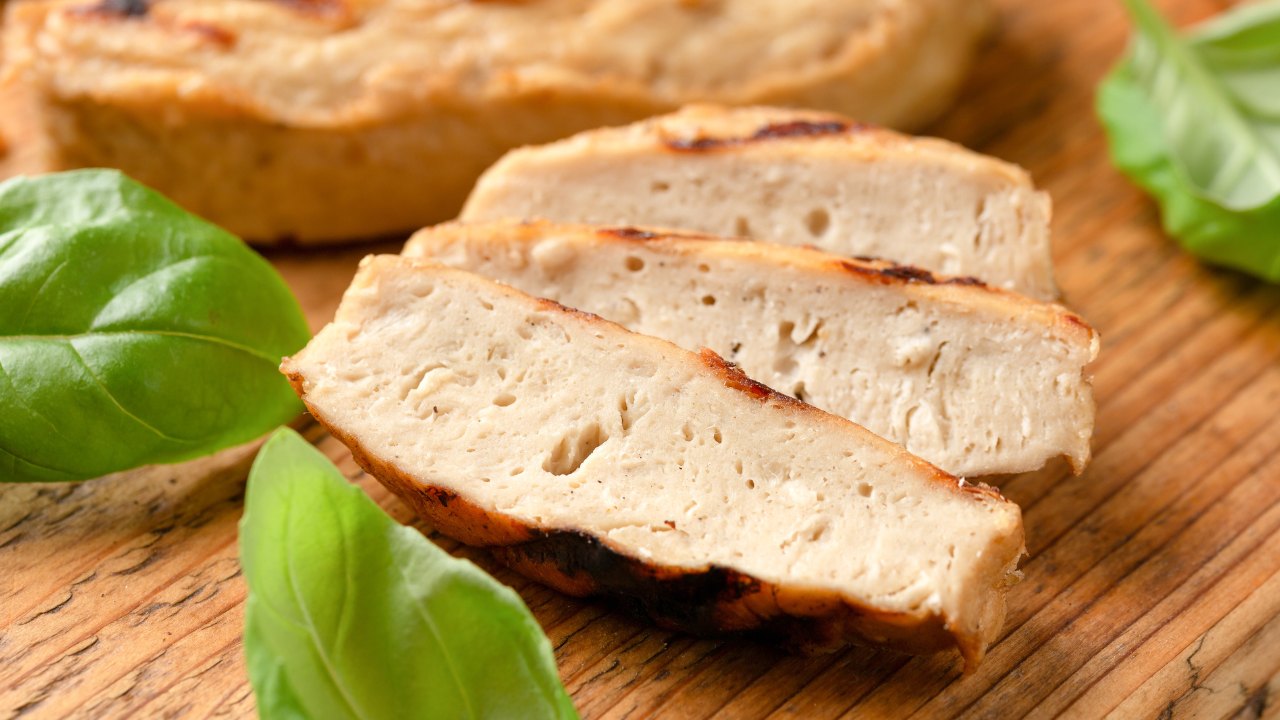Welcome to the world of vegan chicken! This versatile, delicious, and healthy alternative to real chicken is taking the culinary scene by storm. It satisfies your cravings for that familiar and mouthwatering chicken taste, offers incredible health benefits, and contributes to a more sustainable and compassionate world. Are you ready to explore the fascinating realm of plant-based food and learn what vegan chicken is made of?
As an alternative to traditional meat, vegan chicken is usually made of a set of ingredients, including soy protein, wheat gluten, water, wheat flour, garlic powder, onion powder, salt, and other spices. This makes it an excellent vegetarian and vegan option that tastes like the real thing.
From crispy fried chicken to savory chicken nuggets, vegan chicken has become a popular choice among those who want to enjoy real chicken’s taste and chewy texture without any guilt. With the plant-based movement growing exponentially, it’s no wonder that more and more people are looking for ways to incorporate vegan chicken into their diets. So, let’s delve into the ultimate guide to plant-based chicken protein and discover the secrets behind this vegan delicacy.
Key Takeaways
- Vegan chicken is a delicious and ethical alternative to regular chicken, with abundantly available products.
- It provides numerous health benefits compared to animal-based proteins and requires fewer resources for production.
- Consumers are becoming increasingly aware of its benefits, leading to greater availability & acceptance, revolutionizing how we think about food!
Introduction – What Is Vegan Chicken Made Of
Vegan chicken, a delicious and nutritious plant-based chicken alternative to traditional meat, has become a versatile option for various dishes. Creating your own with plant-based ingredients such as pea protein, sesame garlic, and vital wheat gluten offers the pleasure of tasty meat alternatives. These vegan chicken options, like meat-free chicken substitutes, promote health and support animal welfare without compromising flavor.
Moreover, according to projections, the plant-based industry is set to soar from its current $14 billion to a staggering $1.4 trillion by 2050. This growth comes as more people embrace this kind of plant-based diet. In particular, the Vegan Essentials series for Veganuary 2021 offers exciting vegetable alternatives that contribute to this expanding market.
Therefore, why not embrace the plant-based chicken movement? You can learn the composition of vegan chicken and find ways to include it in your diet.

Understanding Vegan Chicken
Originating in China, where Buddhist monks chose to consume it instead of meat, vegan chicken has a storied history. Consequently, this history has led to the development of a wide variety of plant-based chicken options. Today, vegan products utilize ingredients like tofu, vital wheat gluten, and seasonings. These components provide a delightfully chewy and savory texture that closely resembles cooked chicken.
Furthermore, the rising demand corresponds with an increasing variety of available products. From store-bought vegan poultry brands to recipes for making your own dish at home, there’s no shortage of options for those looking to make the switch to a healthier, more sustainable, and humane alternative to real meat.
Key Ingredients in Vegan Chicken
The impressive ingredients in vegan chicken, including soy protein, vital wheat gluten (or seitan), and pea protein, are all rich in flavor and essential amino acids. Soy protein, in particular, is a complete protein source that provides all nine essential amino acids, making it a perfect substitute for chicken in a vegan chicken recipe.
In addition to these primary vegetable protein sources, other ingredients like vegetable broth, plant-based oils, and umami seasonings are also used to enhance the flavor and inherent nutritional makeup.
As the market for vegan chicken continues to evolve, innovative ingredients like mycoprotein and lentils are also being explored as potential alternatives or additions to more traditional proteins.
The Texture Challenge
Creating a texture similar to real chicken stands is a key determinant of the success of vegan chicken products. With various techniques and food technology advancements, the texture has evolved to become delightfully meaty. This advancement allows it to be easily pulled apart with a fork, resembling its animal-based counterpart.
Moreover, one of the most efficient methods for creating this fibrous structure is High Moisture Extrusion Cooking (HMEC). This method significantly contributes to providing a realistic and mouthwatering texture.
Additionally, by combining these innovative techniques with natural flavorings such as wine, miso paste, and sugar, vegan chicken has transformed into an exciting and delicious alternative to traditional poultry, all without the concern of saturated fat.
The Manufacturing Process
The manufacture of vegan chicken involves a combination of traditional and industrial methods, each presenting distinct benefits and challenges. Artisanal production methods, often reliant on handmade techniques, result in a special and unique product. Conversely, industrial production methods employ high-tech machinery and processes to create a consistent and reliable food product suitable for mass consumption.
Furthermore, one key aspect of vegan chicken production is the use of high moisture extrusion cooking (HMEC). Additionally, flavor infusion techniques play a crucial role in creating a delicious chicken-like taste in vegan substitutes.
High Moisture Extrusion Cooking (HMEC)
High Moisture Extrusion Cooking (HMEC) stands out as an efficient method for creating textured products that accurately mimic the appearance, texture, and flavor of meat. In particular, the main goal of this process is to convert proteins and polysaccharides into a fibrous structure. This makes it an incredibly important process in the production of vegan chicken.
Flavor Infusion Techniques
In order to achieve an authentic chicken flavor in vegan alternatives, various flavor infusion techniques are employed, encompassing the use of both natural and artificial flavorings. Notably, some examples that can be used to mimic the taste of chicken include plant-based seasonings, vegan chicken broth seasoning, onion and crushed garlic, and ground ginger. These flavorings play a crucial role in creating a delicious and satisfying chicken taste in vegan dishes.
Conversely, artificial flavorings are employed to recreate a delicious chicken-like taste by incorporating ingredients such as chicken fat, chicken powder, or chicken broth. These specific additives serve to enhance the flavor and aroma, effectively making the vegan substitute closely resemble the taste of chicken.
Moreover, food scientists work diligently to find the perfect balance of flavors to create a realistic and mouthwatering meat-like taste in vegetable protein. This continuous effort contributes significantly to the enhancement of vegan alternatives.

Nutritional Profile of Vegan Chicken
Vegan chicken showcases a remarkable nutritional profile, presenting numerous health advantages over its animal-based counterpart. Notably, some benefits include being lower in calories, fat, cholesterol, and sodium. These qualities render it a healthy and attractive option for health-conscious consumers.
In addition to its impressive macronutrient profile, vegan chicken offers essential micronutrients such as calcium, iron, and vitamin B12. These nutrients are vital for overall health and well-being, enhancing nutritional value.
Fortification Strategies
Enriching vegan chicken products with vital nutrients is a significant step towards ensuring balanced and nutritious plant-based meats. Specifically, they’re enriched with beneficial nutrients such as calcium, iron, and vitamin B12 to maximize their nutritional value, offering a healthier option for consumers.
Moreover, one great technique used to fortify vegan chicken with nutrients is the addition of legume proteins such as peas, lentils, lupines, or chickpeas. These proteins play a pivotal role in the formulation of meat alternatives, providing a substantial source of textured vegetable protein.
Furthermore, fortification can be achieved through the addition of ingredients like nutritional yeast, vegetable broth, seasonings, vinegar, and coconut or olive oil. These additives not only enhance the flavor but also contribute to the nutritional profile, making vegan chicken even more delicious and nutritious.
Allergen Considerations
Despite the numerous health benefits of vegan chicken, it’s crucial to consider common allergens found in some of its ingredients. Specifically, some common allergens to be aware of include soy protein, vital wheat gluten, tree nuts, and sesame seeds. Therefore, it’s important to read the ingredient labels carefully and consider consulting with a healthcare professional if you have any known allergies or concerns.
Moreover, for individuals with allergies or sensitivities to soy, wheat, or vital wheat gluten, exploring alternative options becomes paramount. Thankfully, many vegan chicken products available in the market cater to those with specific dietary needs. This ensures that everyone can partake in the benefits of plant-based chicken proteins without compromising their health.
Ethical and Environmental Aspects
Opting for vegan chicken over traditional poultry poses numerous ethical and environmental benefits. By opting for plant-based alternatives, consumers can show kindness and compassion towards animals on factory farms, as well as contribute to a more sustainable food system.
Sustainability of Ingredients
The key ingredients used in a vegan chicken recipe, such as silken tofu, seitan, mushrooms, soy, wheat, and plant oils, have a lower environmental footprint compared to animal-based products. Notably, plant-based meats generally exhibit lower greenhouse gas emissions and require much less agricultural land and water. Moreover, they cause significantly less pollution than their animal-based counterparts.
The Vegan Chicken Market and Consumer Perception
The rising demand for vegan chicken corresponds with an increasing variety of available products. In fact, the market is flourishing as an increasing number of individuals become aware of the health and environmental benefits of a plant-based diet. Notably, plant-based proteins are gaining traction as people seek more sustainable and ethical food sources.
Moreover, vegan chicken is becoming more accessible in restaurants and grocery stores. Consequently, this increased availability provides more options to incorporate into their diets.

The Role of Vegan Chicken in Global Cuisine
Vegan chicken has unequivocally won the hearts and palates of people worldwide, experiencing enthusiastic acceptance and seamless integration into various cultural cuisines. Notably, from Indian, Israeli, Mexican, Filipino, and Latino communities, it’s providing a delicious plant-based chicken alternative to traditional dishes.
Moreover, culinary innovations are on the rise. Chefs and home cooks are experimenting with new and exciting ways to incorporate plant-derived proteins into their dishes. Given its versatility, vegan chicken emerges as an ideal ingredient for various global cuisines, allowing for diverse and creative culinary expressions.
Also Read: What is Alkaline Vegan? A Deep Dive into the Health Benefits and Lifestyle Practices
Future of Vegan Chicken
Given the expanding market for plant-based alternatives to red meat and the shift in consumer preferences towards healthier, more sustainable, and ethical food choices, the future of vegan chicken appears promising. Notably, exciting collaborations and research initiatives, such as those led by NBA legend John Salley, vegan fast-food restaurant Honeybee Burger, and food tech startup Next Gen Foods, are driving innovation in this domain.
Furthermore, as these efforts continue, we can anticipate further advancements in the taste, texture, and nutrition of vegan chicken products. This progress is poised to make them an even more appealing choice for consumers.
Consequently, the growing trend is set to reshape how we eat and think about food. More people are embracing the benefits of a vegan diet, indicating a significant shift in dietary habits. In fact, many people consistently buy vegan chicken from a local grocery store.
Final Thoughts
Vegan chicken offers a delicious and nutritious alternative to real chicken, providing numerous health benefits. As more people embrace plant-based chicken diets, its popularity and availability grow. The future of vegan chicken is bright, innovative, and rich in flavor, proving that a plant-based lifestyle doesn’t mean sacrificing taste.
Related Questions
Still have questions? Check out a couple of common ones below.
What are the health benefits of vegan chicken?
When you buy plant-based chicken from a local supermarket, you should know that vegan chicken substitutes are a healthy alternative to real chicken with saturated fat, providing essential nutrients and significantly less saturated fat, lower levels of calories, cholesterol, and sodium. Undoubtedly, store-bought vegan chicken is better than tempting, evil foods.
Can vegan chicken be used in different cultural cuisines?
Your own vegan chicken can be used to create delicious plant-based chicken dishes in different cultural cuisines, such as fried chicken, buttered shredded chicken, curry chicken pieces, and milky chicken breast. When you choose plant-based chicken from a local grocery store, you take advantage of healthy ingredients such as pea protein, miso paste, nutritional yeast, vegetable broth, and more.


